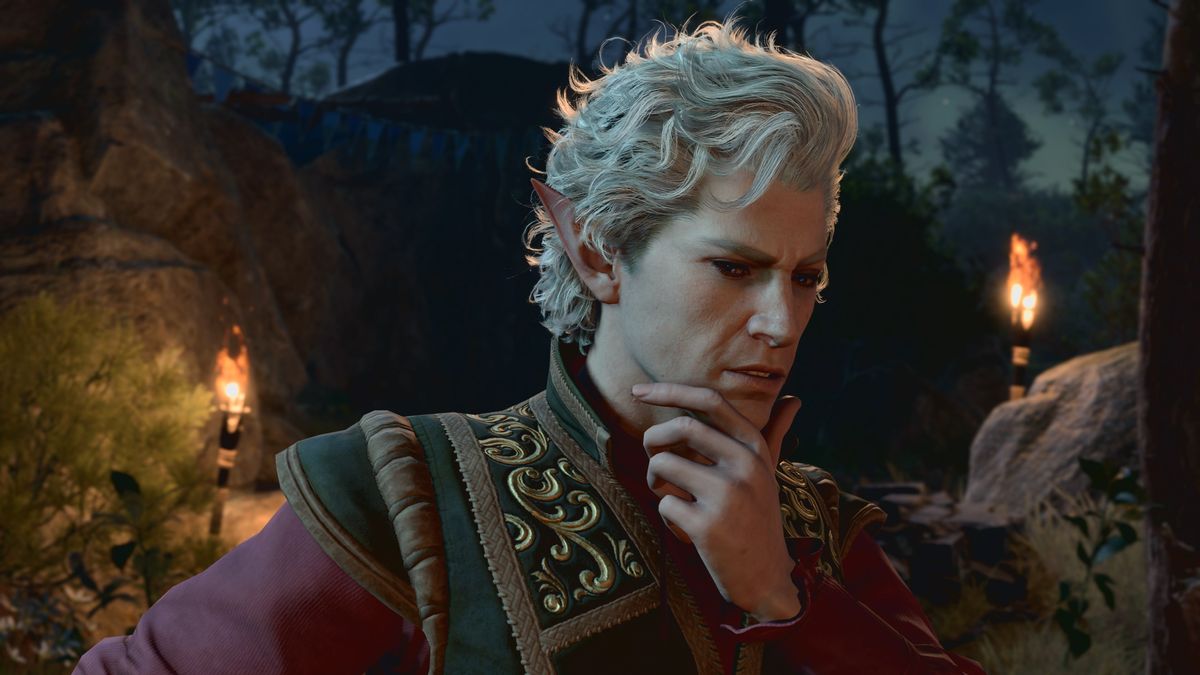Yeah, I wish it wasn’t 100% turn based; it’s the only thing keeping me from loving it. I wish it was something like Dragon Age Inquisiton, in which you can pause and set battle tactics if you want but can also just hack and slash with your main character and let your companions do their own thing. But hopefully I’ll like that aspect of it more as time goes on.
I also with the protagonist spoke during character interactions. It’s a little weird that they remain completely silent when you have other moments where they do speak. I guess it would have taken a ton more time to record so much dialogue but given how much they recorded for everyone else, it makes those moments feel less personal than they should. Not sure if the protagonist speaks more if you choose one of the BG3 NPCs as your player character.
I was also not very happy when this was revealed being on a turn-based system unlike the first two BG games which used a real-time with pause system. You can look up the first pages of this thread to see a few old farts being unhappy...

Considering this is based on D&D, turn-based actually makes sense. I do understand a preference from one to the other. Even a turn-based RPG hater like
@DKDetective ended up loving his experience on this game.

Personally, I prefer silent protagonists. I much prefer hearing my own voice when reading dialogues instead of an accent that doesn't really match my character (
Cyberpunk 2077, I'm looking at you).
Thanks for the insights! I’ll have to go back and check my class/build later. But good to know you can use the environment to your advantage.
I love that Larian brought over the immersive sim aspects from their Divinity Original Sin games to this. The game offers a lot of freedom so, yes, use the environment to your advantage, and not just in combat but during exploration too! Want to loot an abandoned castle but seems inaccessible because gates/doors are blocked? Stack up some crates and build an improvised staircase to climb over the walls!
Also, small correction on the high/low ground mechanic. It actually gives a bonus to attack rolls, not damage rolls. FYI in case you don't know, attacks are in two rolls:
1. Attack roll, aka "will I hit or miss?": the sum of your d20 roll plus any modifiers must be equal or greater than your enemy's AC to be a successful hit.
2. Damage roll, aka "how much damage will I do?": depending on your weapon, you will roll a die (or dice) for the damage plus any modifiers.
Example: Your opponent has an AC of 16 with no resistances and you don't have any modifiers.
1. Attack roll: You must roll between 16 and 20 to hit your opponent. Rolling between 1-15 and you will miss.
2. Damage roll: If you hit, then you can do damage according to your weapon. Shortsword is 1d6 so between 1-6 damage; greatsword is 2d6 so you can damage between 2-12.
Critical hits will always hit no matter the opponent's AC. Say a mini-boss has an AC of 24 and you land a natural 20, then you will hit.
As all things fantasy RPGs, consume potions/elixirs to give you some buffs. I'm sure DK or
@DeadlyWest can give you additional tips on combat since they've actually finished the game unlike me.




www.pcgamer.com












 tech4gamers.com
tech4gamers.com





